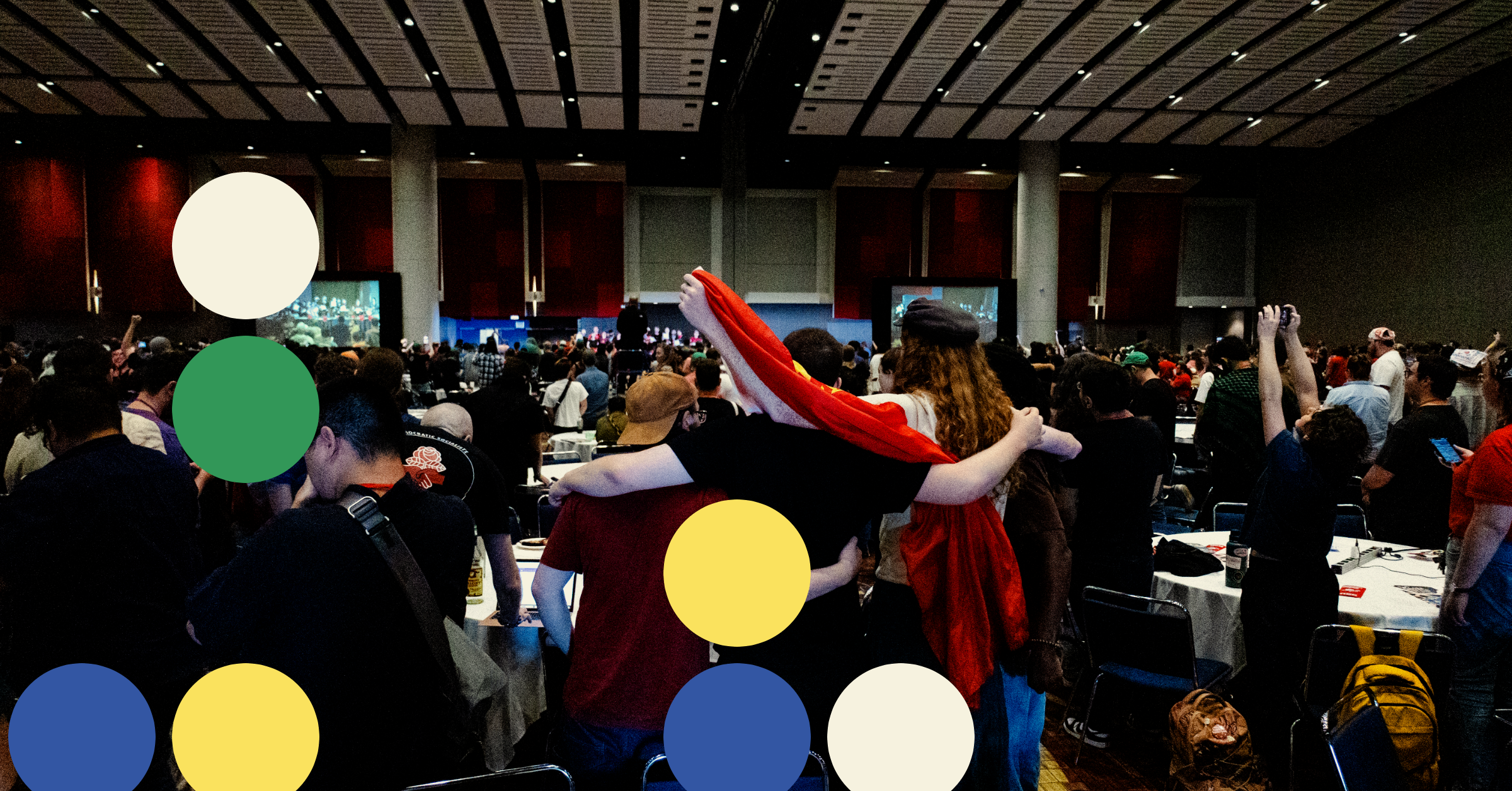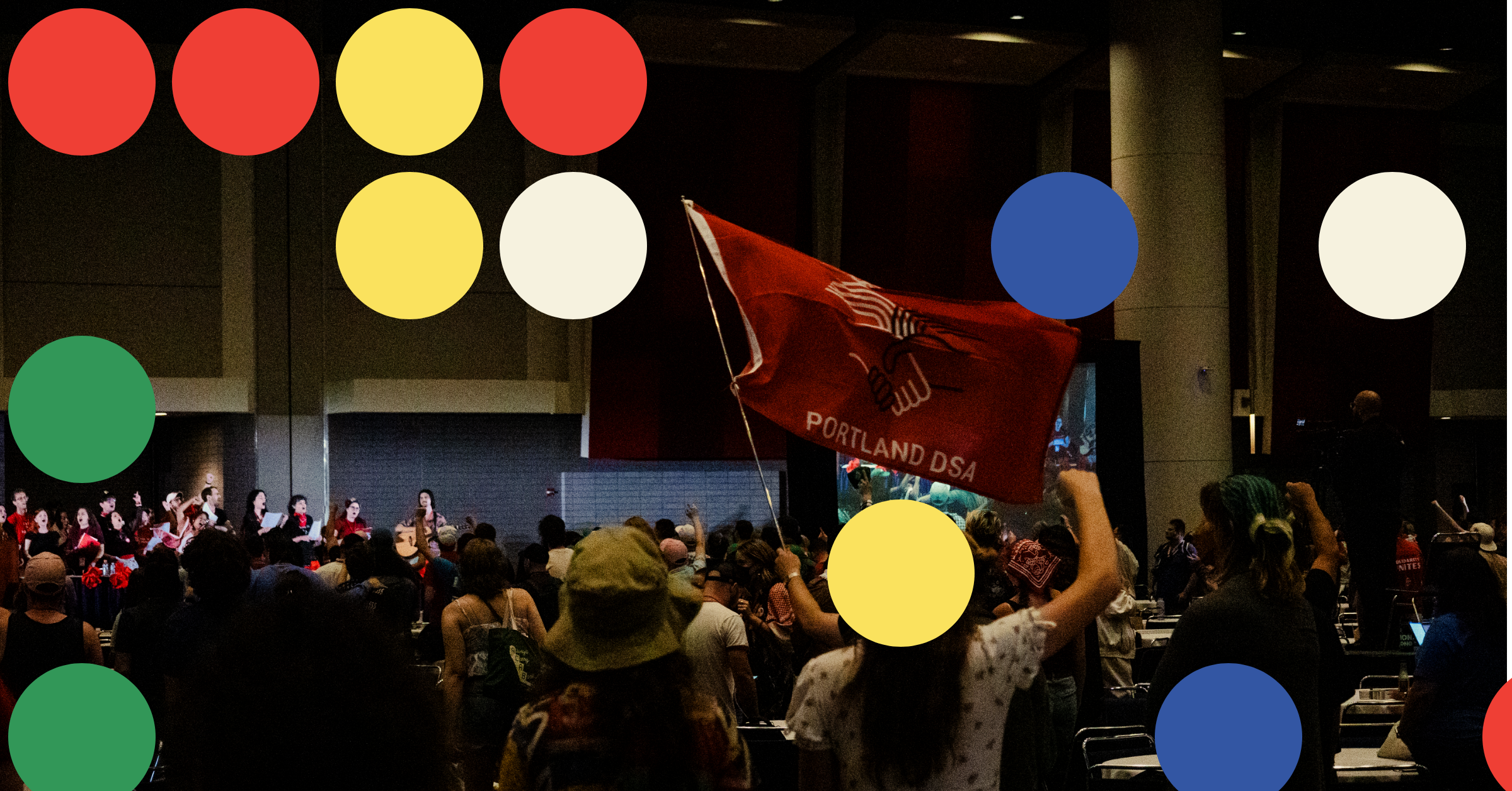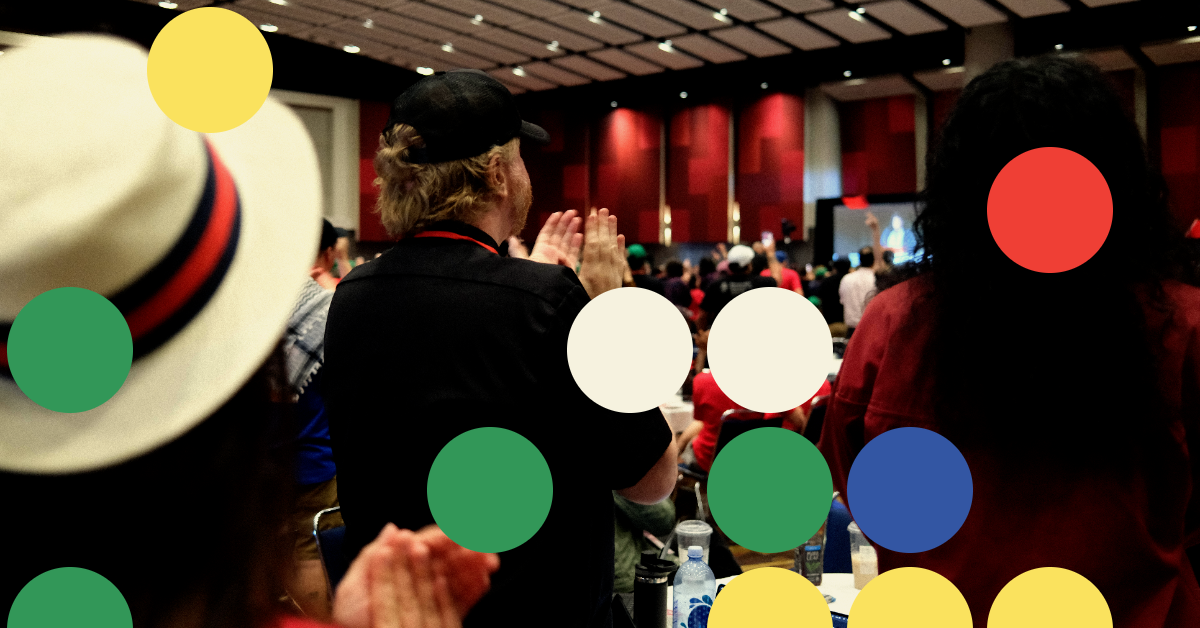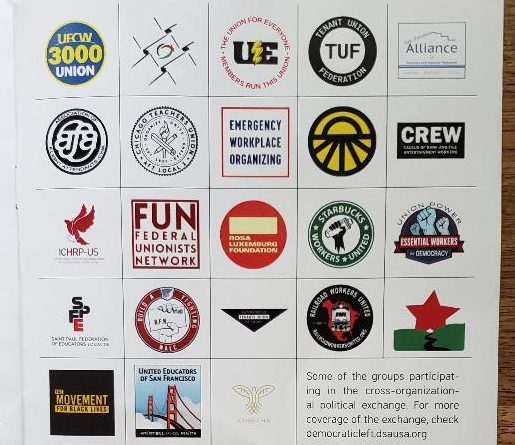Like every convention since DSA’s rebirth in 2016, last month’s was lively and contentious. There are few organizations in the U.S. that hold gatherings like ours, with passionate debates and contested elections. As messy as this process can be, I’m proud to be part of an organization that governs itself this way.
This year, delegates made important decisions, including a 2028 presidential campaign and the Democracy Commission’s set of structural reforms. Still, observing the process, I felt dissatisfied. The convention was democratic, but it was a highly adversarial kind of democracy.
Speakers usually seemed to have prepared their remarks beforehand. It was rare to hear a speaker directly address the arguments of the opposing side (who were, literally, on the other side of the cavernous hall, barely visible across rows of tables). While speakers made their points, most delegates seemed to have their attention elsewhere, whipping votes at their table or through their laptop screens.
I’m sure that not every delegate had their mind made up on every resolution before walking into the room. But my impression was that most of the real political argument and persuasion was happening at tables and in private groupchats, not by listening to speakers and evaluating their arguments.
I walked away feeling like I had been a spectator at a tournament where some groups won and others lost, rather than a truly collective process of deliberation.
By Design
The reason why convention feels like a contest is that parliamentary procedure is meant to do exactly this. Under a Robert’s Rules system, speakers are incentivized to distinguish their positions sharply from opponents’, while the chair is obliged to move delegates towards a clear decision, usually via majority vote.
Even if more time were available, with fewer people in the room and fewer distractions from our devices, this process is simply not suited for generating deep understanding across political lines.
I’m not naive about how democracy can work in a large and fragmented organization such as ours. I believe in majority rule and an efficient parliamentary process to determine those majorities. Still, it seems to me that DSA members would benefit from more opportunities to get together and exchange ideas without the stress of political competition hanging over their heads.
At DSA’s 2023 convention, delegates passed a resolution that’s worth revisiting. Resolution 16, proposed by my Bread & Roses comrade Nick Conder, was part of the consent agenda (a package of items that delegates felt comfortable approving without debate.)
Resolution 16 called for DSA to re-establish the National Activist Conference, a gathering described briefly in DSA’s constitution but which has not actually been held in recent years. The Activist Conference would be an opportunity for DSA members to meet in between conventions in a low-stakes setting, without voting or formal debates.
Because of DSA’s budget crunch, no Activist Conference was held in 2024. But today, DSA is growing again and our finances are healthier. Our newly-elected National Political Committee should revisit the idea of holding an in-person Activist Conference in 2026.
This conference would be open to any DSA member, with a process that ensures diversity in race, age, gender, and income. The event could be similar in some ways to YDSA’s Winter Conference, with panels and workshops.
But the most important thing would be for members — both rank-and-file activists and national leaders — to engage in meaningful, structured conversations about the key debates facing the socialist movement.
These discussions would aim to get past arguments about this or that organizational form. Instead, conferences should engage the deeper questions of DSA’s strategy. The goal would be to draw out and clarify the underlying assumptions—about politics, society, and history—held by different members and tendencies.
For example, one important division that became clear at convention concerned the scope and purpose of DSA’s political program. Should we adopt a program that makes a few clear and succinct demands, like Medicare for All, a Green New Deal, and a national popular vote for president? Or should we opt for a more detailed “maximum program” that describes our longer-range vision of a socialist society?
Delegates were closely split on an amendment proposed by Marxist Unity Group and Reform & Revolution that would have committed DSA to adopting a full-scale maximum program. The amendment spelled out a whole host of programmatic issues, each of which could have been discussed at length. But in the constrained schedule of convention, the amendment was debated for no more than 20 minutes before being voted on and narrowly rejected.
Building genuine consensus around a maximum program within DSA’s big tent — the kind of program that any active member feels comfortable presenting to a friend or coworker curious about socialism — is not the sort of thing that can happen in 20 minutes.
If it is possible at all, it will take years of discussion and debate at every level of the organization. An Activist Conference could be one important venue for this, alongside discussions in chapters, union branches, and regional gatherings.
Smaller Convention + Activist Conference
Restarting the tradition of Activist Conferences could also reduce the pressure placed on convention as our only regular nationwide gathering. Because these opportunities are precious and rare, DSA leaders are understandably reluctant to be too strict in allocating delegate positions to chapters.
But it is worth asking whether the convention is well-served by having as many delegates as we do, the vast majority of whom never get a chance to speak on the floor.
Cutting the size of convention by one-third or one-half would improve the quality of debate, especially if combined with other changes like shortening the length and complexity of the agenda and reducing the pervasive and distracting role of technology in the voting process (how about a “no phones or laptops” debate bloc?). With an Activist Conference, there will be less need for such massive (and expensive!) conventions. Some of the money now spent on convention could go to the Activist Conference instead.
As DSA resumes its growth and becomes more factionalized, it’s essential that we find new ways to hold the tent together. One of the very best things we could do is to bring together members to talk politics and build bridges — not decide winners and losers. It’s time to bring back the Activist Conference.




